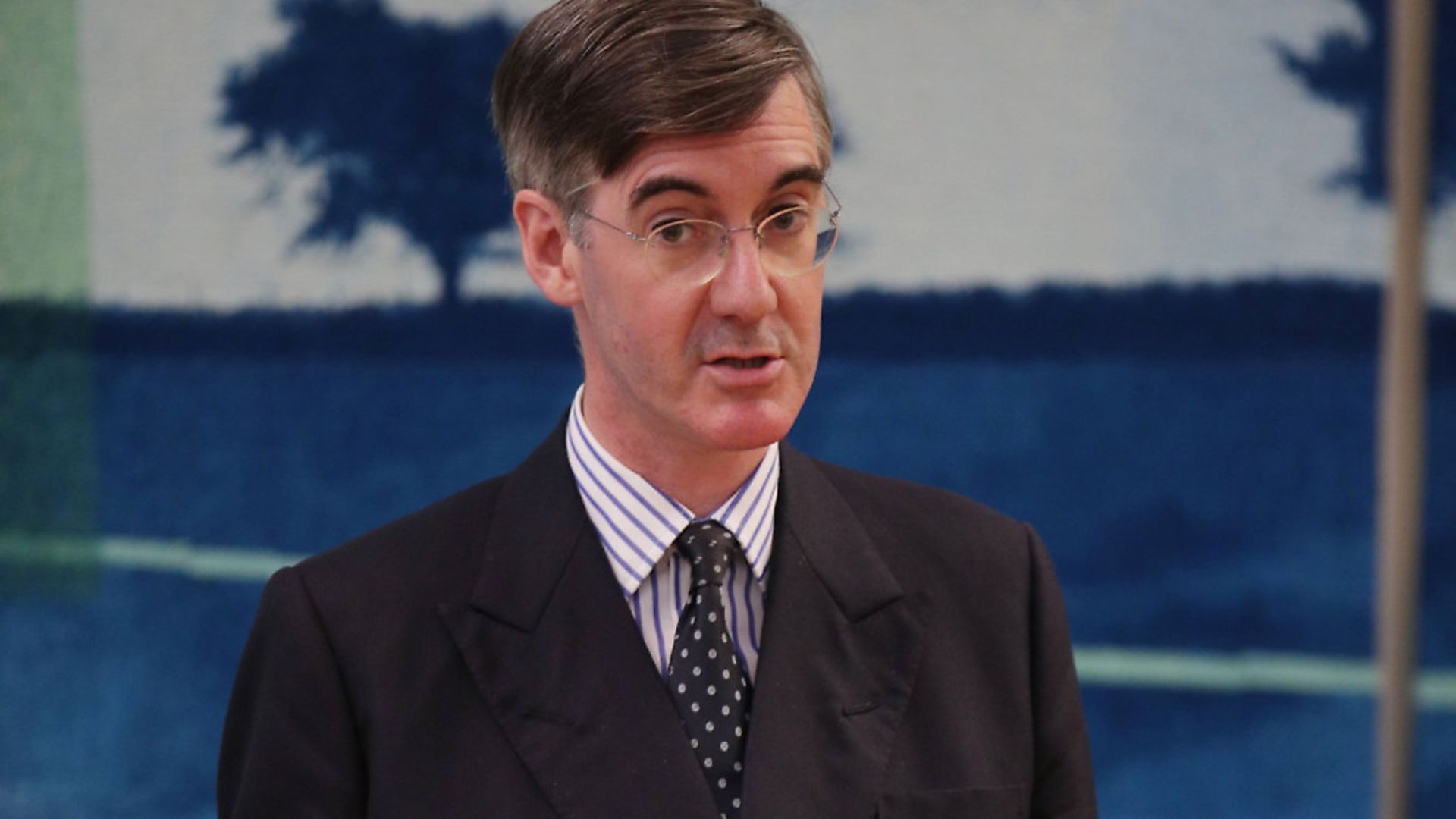
We should recognise that however charmingly it is sold, what Rees-Mogg is selling is toxic, and not fit for consumption, says JAMES BALL
During his early years in parliament, Jacob Rees-Mogg was a joke.
Despite being the multi-millionaire part-owner and manager of a hedge fund, with hard-right homophobic and anti-choice views, his faux aristocracy was enough to charm most of the British media into seeing him as a lovable eccentric – and many still do.
Love him or loathe him – though it should be the latter – despite his lack of frontbench role, Rees-Mogg is now one of the most influential people in the Brexit debate, as the head of a 60 plus grouping of anti Europe Tory MPs the European Research Group.
The group contains many of the Conservative’s most hard-line Brexiteers, considerably outnumbers the awkward squad of Europhile Conservatives, and could easily rob Theresa May of her majority. There are even enough ERG MPs to trigger a leadership challenge against May, if they so wished. Rees-Mogg is in a powerful position, and the people running the Brexit process know it.
Given his political power, and his previous career as an investment manager and trader for his hedge fund – which has netted him millions even during his parliamentary career – you might expect Rees-Mogg would understand even the basics of what Brexit might mean, at least for the economy. Reader, you would be disappointed.
One line Rees-Mogg has consistently liked to tout throughout his television appearances in the Brexit process is that scrapping tariffs could help UK shoppers by slashing prices by 20% (the figure he most commonly quotes), with particular benefits going to low-paid families, who spend the most of their income – a vision of Brexit which appears to promise a better future for the worse-off.
Rees-Mogg appeared to get a big boost for this bright vision of life after Brexit by a Sun article showing huge cuts to the prices of a range of household goods, which he tweeted on February 27, thanking the paper for ‘calculating the huge savings for us all outside the customs union’.
The article had promised dog food could be £2.10 cheaper, bikes would cost £57 less, trainers could be £20.40 cheaper, and far more – but it had one problem: every single calculation in the article was wrong. The Sun deleted the online version of the piece, and never republished it with corrected figures. Rees-Mogg took a simpler route with his tweet, which was retweeted more than 3,000 times: he simply left it up and carried on using it as a talking point.
The Sun might not have been able to calculate the real effect of slashing tariffs on consumer prices in the UK, but thankfully someone has: the widely respected and political impartial Institute of Fiscal Studies published a report this week outlining the effect of the UK slashing all of its tariffs unilaterally.
The research did show overall prices would get cheaper. When it looked at the actual level of tariffs charged in practice (versus the higher-looking headline figures), and how much spending would be affected, the think tank found that prices would indeed drop – by a one-off 1.2%.
That might initially look like good news for Rees-Mogg’s argument. OK, he may have promised a cut in prices 16 times greater than the one customers would actually get, but a price cut is a price cut, right?
Wrong: firstly, prices rise by about 3% every year at the moment, with inflation, meaning a one-off cut would very quickly seem all but irrelevant. But more significantly still to Brexit, the IFS estimate that the sharp drop in the value of the pound following the result raised UK prices by around 2% – meaning that even in scenario we’re left worse off.
That IFS analysis was deliberately based on very optimistic assumptions, too: it assumed that all producers and resellers (such as supermarkets) would pass on the entirety of the reduced cost from the tariffs, taking none of it as extra profits for themselves.
It also ignored the complex effects of other bits of the supply chain: the UK has high food standards, which some countries which don’t currently supply us due to tariffs don’t meet – so to get the cost cuts, we would either need to drop our standards, or talk the other countries into raising their standards without raising their costs.
The tariffs argument also totally ignored the effect of unilaterally slashing all of our tariffs on our ability to negotiate trade deals, and on our own ability to trade: if we can import some cheaper food and other materials, could that threaten UK producers who are already struggling?
The evidence suggests it would – take for example UK sugar, some of which is imported and some of which is grown and processed here. Slashing sugar tariffs would mean it would make sense to import more and produce less, hurting the farmers and factories alike. And as slashing tariffs is a key motivation for negotiating a trade deal, it would cripple our negotiating leverage, leaving us needing to accept bigger concessions than we’d like to give.
This is how comprehensively Rees-Mogg’s promises crumble: he appears on virtually every television and radio programme painting a picture of a post-Brexit Britain that’s good for consumers and good for the worse-off.
Even a cursory look at the evidence reveals it would deliver the opposite: higher prices, lower standards, and a crippling blow to some UK industries. We should recognise that however charmingly it is sold, what Rees-Mogg is selling is toxic, and not fit for consumption.










